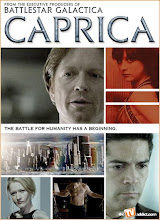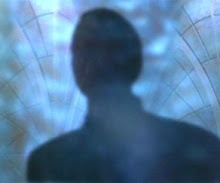I had a sinking feeling when I heard that the final issue of Flashpoint would be the only single-issue title released in the last week of august.
I'm used to these crossover events; I've come to expect 'bold new directions' for the major characters, costume make-over's, loudly trumpeted creative teams and being expected to purchase 20 or 30 tie-in books, lest I miss vital chunks of the story (yeah, right). And, like any DC or Marvel fan, I'm no stranger to Crisis-style plots designed to give the (supposedly) stagnant fictional universe a clean slate. This, though, is different.
Crisis on Infinite Earths was constructed with the aim of streamlining the DC mythology, crammed as it was with parallel universes, alternate timelines, multiple versions of every major character, and plenty of regrettable kitch. Readers of the 1980's, reasoned the Powers That Be, might just be put off by continuity references dating back to the war, and certainly wouldn't be as impressed by the likes of Beppo the Super-Monkey as their parents were, as kids. A scorched earth policy would eliminate these issues; one timeline, one universe, one Earth, with modernised versions of all the iconic heroes and villains, keeping what worked, binning what didn't.
The trouble was of course that the DC U was just too damn vast. The A-, B- and C-list heroes alone comprised dozens upon dozens of superheroes, each with their own backstory, supporting cast, villains, sidekicks and so on. Not every one of them had their own comic book, but the majority made regular appearances, often in several titles per month. When you factor in characters from other, defunct comics companies acquired by DC (the Charlton Comics heroes, the Captain Marvel family, et al), the volume of new ones being introduced every year, plus minor figures still being used here and there- for the sake of maintaining the ownership rights, for instance- and you're obviously facing the same problem. The universe was never going to stop expanding.
Since that time, we've had two further Crises, cake-and-eat-it plot mechanics such as Hypertime, or the revival of the multiverse (now restricted to 52 parallel worlds), and smaller event stories designed to untangle new continuity problems, as in Zero Hour, or generally give the DC catalogue a healthy shaking-up (Identity Crisis, and so on). In each case, the classic DC heritage seemed to win out, one way or the other. Fragments of deleted histories found their way back into the panels, often via revivals from high profile writers, like with Grant Morrison's brilliant take on a unified Batman mythology.
While all this was going on, Marvel came up with the Ultimates. While the regular Marvel books carried on as usual, this flashy new line showcased Spider-Man, the X-Men, et al as if brand new, with ruthlessly retooled origins and artwork. People who knew nothing about the characters could embrace these boiled-down versions, and they were a huge success from the outset. DC should have capitalised on this, and seemed to have made a half-assed attempt with the All-Star Batman and Robin/ All-Star Superman series', also very big sellers, but a long way from something like Ultimate Avengers.
In the past year, the Twilight-influenced Superman: Earth One was released, promising to be the first of several all new, youthful, continuity-free graphic novels, clearly in the Ultimate vein.
For a long time, people have been debating the releative merits of Marvel over DC and vice versa; which was the stronger company, who produced the best comics or the most iconic superheroes. In the last decade, the balance has seemed to be tipped emphatically in Marvel's favour, with one mega-budget movie adaptation after another proving to be a huge box office draw. Not so long ago, Iron Man and Thor would have been called 'obscure' by most pundits. Now everybody recognises them. Spider-Man's rogue's gallery is almost as well known as Batman's. Even our disinterested parents can now name half a dozen X-Men.
It's well established that only spectacular incompetence can produce a screen version of Batman that doesn't work, so yet more record-breaking Bat-flicks don't really impress anyone all that much. In movie terms, DC is pathetically lagging behind the competition. Constantine, The Losers and Jonah Hex are obviously no help at all. As far as many observers are concerned, the war between DC and Marvel has been decisively won. The people have chosen their victor.
The pro-Marvel argument goes something like this: Marvel is more realistic. It's characters are recognisable human beings and the stories are rooted in real world issues. It's far easier to relate to an awkward teen who lives in New York City than a demigod in Metropolis. It is this down to earth quality that readers and moviegoers find appealing, and this is what gives Marvel the edge.
Well, let's take Stan Lee. The greatest showman in comic books, Lee's gift was for dreaming up striking characters with nifty gimmicks whose modus operandi could be summed up in a sentence. With artists like Jack Kirby, Lee produced a small army of heroes and villains with trememndous visual punch. For children, the attraction was obvious. The characters were instantly and endlessly merchandisable, and as history has proven beyond doubt, ideal fodder for adaptations into other media.
Of course, a cynical person might submit that these latter attributes were the real key to the Marvel success story, and that the characters themselves were, shall we say, not quite as breathtakingly original as the Uncanny Self-Publicist liked to claim. For example, Doctor Strange and the Fantastic Four could well be seen as a Doctor Fate and Challengers of the Unknown for the 1960's. Iron Man is essentially Batman, if you replace gothic horror with sci-fi. And DC had a blind superhero, Doctor Mid-Nite, 20 years before Lee's 'groundbreaking' Daredevil. One could also point to significant antecedents for Spider-Man and the X-Men.
The point is, Stan Lee was all about the gimmick, the one-line pitch. He gave the public plenty of spectacle and bang for their buck. He'd never have considered a mere human in a costume (the non-high tech kind) with no actual superpowers, but that's exactly what Batman is. So is Green Arrow. So are most of their allies, as well as many other significant players in DC, even today.
This talk of 'realism' doesn't quite hold up. Yes, Peter Parker is just an ordinary kid... Until he gets super powers, then he becomes something totally beyond the ordinary. That's rather the point of comic books, which are, in the end, mythology. Setting your comics in NYC is all well and good, but it's still a comic book. It doesn't make much difference if Obama is President in your fictional universe instead of Lex Luthor, when said universe is populated by gods, magic, radiation that gives you superpowers, etc.
When people talk about such and such a story being 'realistic', what they're actually talking about is that 'verisimilitude' Richard Donner captured for Superman: The Movie. It is emotional realism, whereby the characters' reactions to events, however outlandish, are recognisably human and honest. Marvel fans claim this as their territory, but y'know, DC does that as well. How is Peter Parker's strugle to balance life and love with his career as a superhero really any different from that of Clark Kent?
It doesn't matter in the grand scheme of things. What matters is the numbers, the millions upon millions these movies bring in. Many years ago, comic books evolved, if that's the word, from cheap, disposable entertainment for kids to collectors items. Comics fans were grown up, second generation, they became a niche market. The comic books vanished from supermarkets and newsstands, only to be found in 'specialist' shops, a situation that continues to this day. According to some reports, the monthly comic books themselves actually represent an unprofitable area for the entertainment giants that publish them, the real money being in collected edition, mass-market graphic novels and the movies, cartoons and video games based on the properties.
We're now at the point where public awareness of comics and superheroes is at an all-time high, and yet we still don't see the comic books promoted. When Iron Man or The Dark Knight opened, there were no ads in newspapers or on the sides of buses prompting people to learn more about the characters they'd seen at the cinema by actually picking up and reading a comic book. It seems to me an extremely obvious and totally neglected area of potential revenue.
Now DC and its parent company want to be the first to step into same day digital publishing, and they want as many new people drawn to the books as possible. The upshot of which is closing the book on DC's 75 year history, all titles cancelled and relaunched at issue #1. Instead of building their own Ultimate line, DC is simply becoming Ultimate DC. It is a shameful move, one motivated entirely by greed. Stories and character building that have unfolded over years, decades, are to be swept away. Genuine icons are being broken down and rebuilt, to accomodate new audiences expected, it seems, to hold them in contempt. I notice from the Jim Lee promotional art that Wonder Woman's most recent and much-loathed costume is now the 'official' look. And oh yes, Superman's red trunks have been done away with. Because they looked so dumb, right?
How utterly pathetic. How is it the people who actually own these heroes can have so little respect for them, such lack of appreciation of the very fundamentals of this mythology?
We expect better from DC, Goddammit!
Marvel pulls shit like this all the time- and arguably betrayed their own heritage once and for all when they opted to base their new movie series on the Ultimates versions of the characters- Marvel fans are used to it.
I never, ever expected DC to pull a Heroes Reborn on us.
I love DC Comics. I love the universe, the characters, the legacy. I love that when you read Superman or Batman, you're reading popular fiction that has been in continuous publication since the end of the Depression, weathering every storm, every war, surviving every shift in politics and fashion, and always remaining relevent, popular and able to ignite the imagination. Superhero mythology is like nothing else, and DC is its ancestral home. I am one of countless individuals whose lives have been touched by it in some way, and am among legions of passionate, devoted followers who look forward to new stories every month, year after year.
As of September 2011, all those feelings and memories we have invested in these stories are effectively null and void. I am a fanboy, and this breaks my heart.
R.I.P DC.
Tuesday, 31 May 2011
Subscribe to:
Post Comments (Atom)


















.jpg)












No comments:
Post a Comment